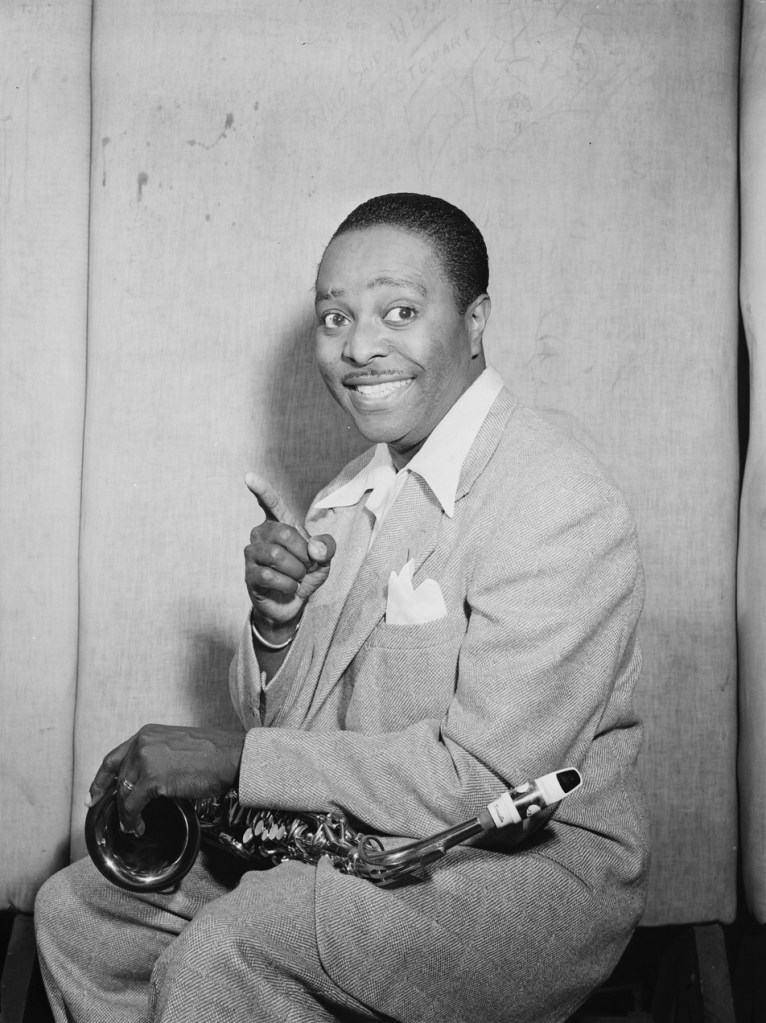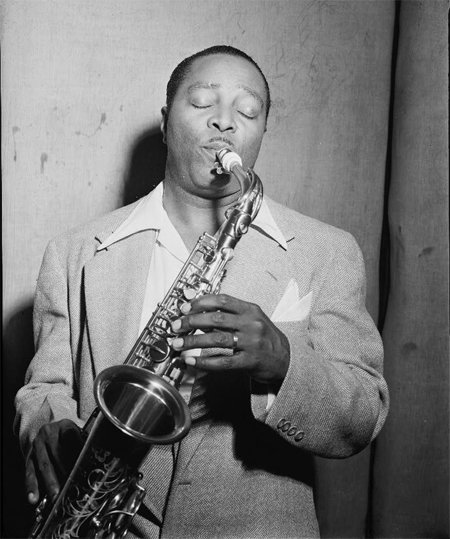
Louis Thomas Jordan was a talented singer who added comedy with over the top expressions to become world famous during the swing era and forward. He fronted his own band for over twenty years and had dozens of hits during the 40s and 50s. Because of his musical flair this singer had duets with such stars as Bing Crosby, Ella Fitzgerald and Louis Armstrong. Louis also starred in two musical feature films and a number of shorter clips.
Jordan was born on July 8, 1908 in Brinkley, Arkansas. His parents were James Aaron and Adell Jordan and young Louis studied music under his father. James Aaron Jordan led the Brinkley Brass Band where he became extremely talented with the saxophone and clarinet. After his mother’s death the father and son traveled throughout the mid-south playing shows at churches, lodges, parades and where ever they could get a gig. As he got older Louis left his father and performed in a series of bands around Little Rock and Hot Springs
In the 1930s Louis Jordan got his big break when he joined the Charlie Gaines band playing the clarinet and saxophone along with vocals. This band recorded and toured with the legend Louis Armstrong. In 1936 he joined Chuck Webb’s Savoy Ballroom Band which was fronted by Ella Fitzgerald as featured singer. Jordan played sax and sang on some songs. Unfortunately he was fired by Webb in 1938 for trying to get Fitzgerald and others to join his new band. This new group was called the Tympany Five even though the number of members always varied.
The Tympany Five revolutionized music during the Big Band Era as they were among the first to add the electric guitar and bass with horns. Jordan set the groundwork for future R&B and rock artists. He was also unique because of his dance moves and show presence. His songs could be classified as both blues or jazz and Jordan had cross over appeal to all groups. Louis Jordan charted dozens of hits from the early 1940s including songs like “Ration Blues” and “Is You Is or Is You Ain’t my Baby.”
Louis Jordan once said he played “for the people” and his performances combined to create a unique and fun type of blues and sound. Although many of his songs depict drunken and wild scenes, he didn’t drink or smoke. Like many artists who came later it was all an act to entertain the crowd. In 1945 he released his hit song “Caledonia.”
As rock and roll and R&B emerged, Jordan’s record sales began to decline. In 1954 his record company Decca released him. Although he continued to work and release songs Louis was never able to regain his popularity. In 1957 his home town of Brinkley honored him with Louis Jordan Day. In 1973, he released his final single. Just over a year later the “The King of the Jukebox” passed away in Los Angeles, California on February 4, 1975. He is buried in St. Louis.
Louis Jordan was inducted into the Rock and Roll Hall of Fame in 1987 and named an American Music Master. He was inducted into the Arkansas Entertainers Hall of Fame in 1998 and the Arkansas Black Hall of Fame in 2005. In 2017 U.S. Highway 49 from Brinkley to Marvell was named the Louis Jordan Memorial Highway. Then in 2018 he was honored with a Grammy Lifetime Achievement Award.
Sources:
Koch, Stephen. “Louis Jordan: Son of Arkansas, Father of R&B.” Charleston, SC: History Press, 2014.
Chilton, John. “Let the Good Times Roll: The Story of Louis Jordan and His Music.” Ann Arbor. University of Michigan Press, 1994.

Leave a comment